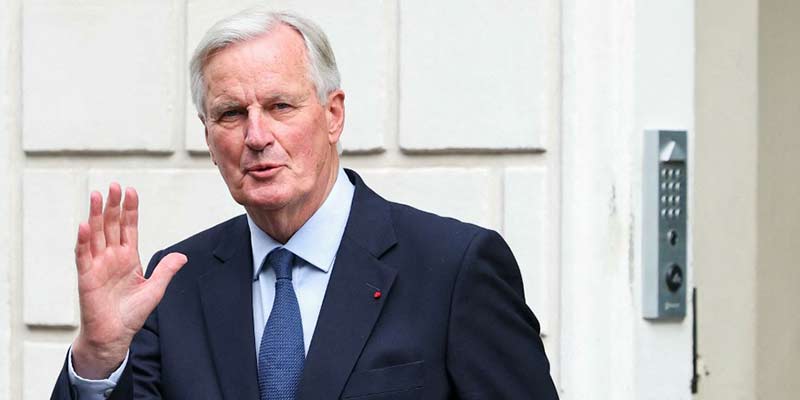- World
- Sep 06
EU’s Brexit negotiator Michel Barnier named as France’s new PM
• After two months of political chaos following snap elections, French President Emmanuel Macron named Michel Barnier as new Prime Minister.
• Barnier, 73, is the oldest of the 26 Prime Ministers that have served modern France’s Fifth Republic. He replaces the youngest, Gabriel Attal, who was 34 when he was appointed just eight months ago.
• Formerly a foreign minister and the European Union’s Brexit negotiator, Barnier has had a long political career under a series of centre-right governments starting in the mid-1990s.
• Barnier’s appointment ends more than 50 days of a caretaker government in France, but offers no guarantee of a return to political calm. Barnier faces the tough task of having to work with the acrimonious and deeply split hung Parliament that emerged from an early legislative election that Macron called in June.
• Without a legislative majority of his own behind him, Barnier will need to find loose ad hoc groupings of backers in the National Assembly to tackle France’s pressing issues.
• Barnier, a career politician proud of his humble roots in France’s Alpine region of Haute-Savoie, is no stranger to complex and daunting tasks.
• He was the European Union’s chief negotiator in the difficult talks with Britain over its departure from the bloc.
French Parliament System
• The Constitution of the Fifth Republic, adopted in 1958, was amended by referendum in 1962 to establish the direct election of the President by universal suffrage.
• This created a hybrid political regime with some presidential and some parliamentary characteristics, sometimes described as a ‘semi-presidential regime’ or a ‘hyper-presidential’ regime.
• The government is responsible to Parliament, but contrary to classical parliamentary regimes, the President plays an important role.
• The Parliament is bicameral and is made up of the National Assembly and the Senate.
The Parliament has two houses:
i) The 348 French Senators are elected through indirect universal suffrage for six years.
ii) The National Assembly, with 577 deputies elected by direct universal suffrage for five years.
• The indirectly elected Senate represents the ‘territorial communities of the Republic’ and shares legislative power with the National Assembly. It embodies continuity, as it cannot be dissolved and half of its Members are renewed every three years. However, in cases of disagreement, the National Assembly has the final say.
• The President appoints the Prime Minister, who proposes the members of government to the President, who then appoints them.
• The President chairs the Council of Ministers, enacts laws and is the head of the armed forces. The President can dissolve the National Assembly, and, in the event of serious crisis, exercise emergency powers
• Traditionally, the Prime Minister makes the government’s programme or a general policy statement an issue of a vote of confidence before the National Assembly.
• Legislative powers are exercised by the two houses, who vote on laws, monitor government action and assess public policy.
Manorama Yearbook app is now available on Google Play Store and iOS App Store

